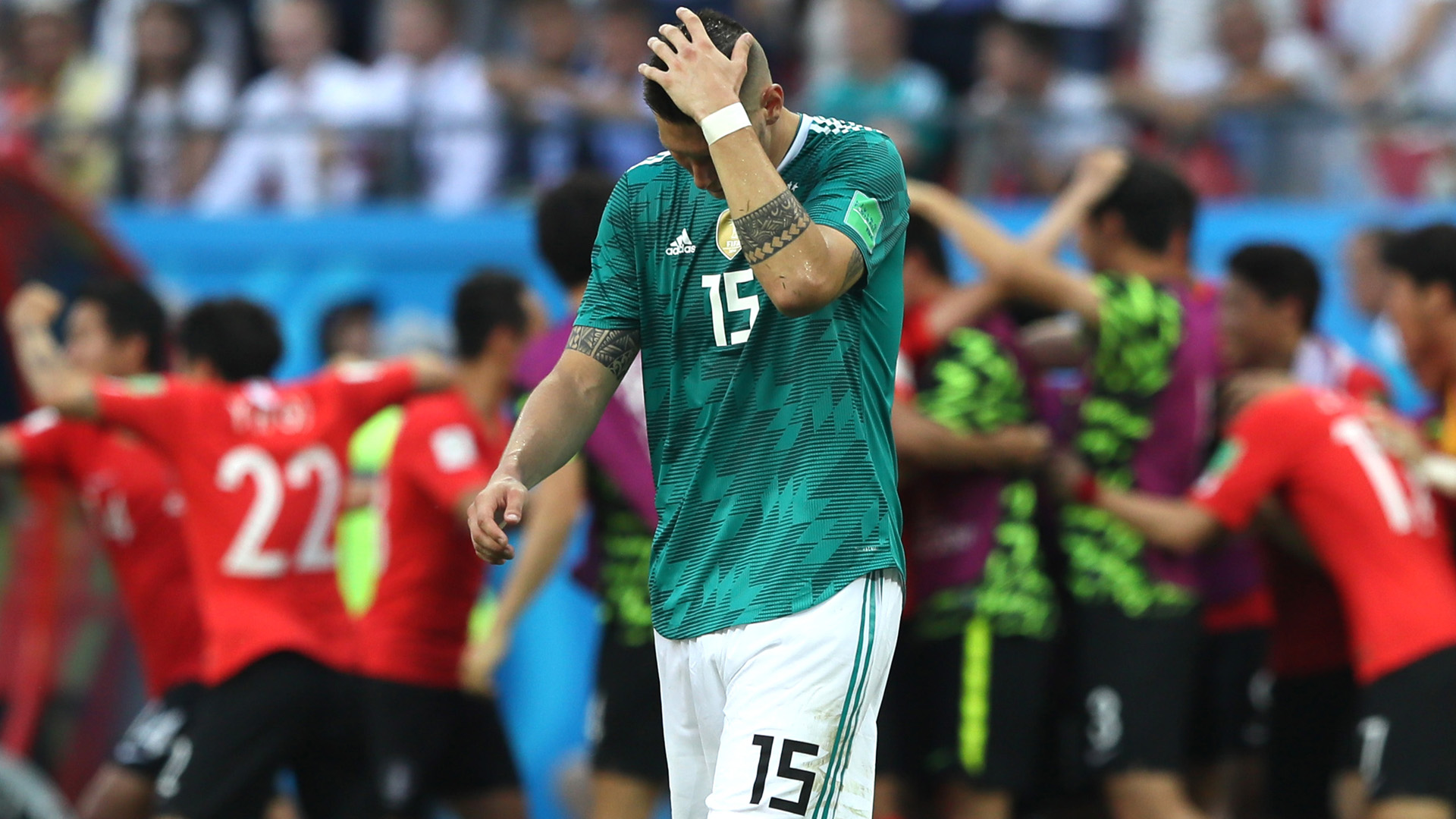The group stage of the World Cup in Russia has been exhilarating in several ways: there have been brilliant goals, controversial calls, last-gasp winners and the highs and lows of progress and elimination respectively.
Now that the dust has settled on what was a breathtaking first stage of the global finals, one can’t help but feel Africa’s representatives will be feeling a bit blue with how things have panned out.
At the conclusion of the draws in December, it appeared as though Egypt had the best draw of the African sides, followed by Senegal, Nigeria, Tunisia, with Morocco being the unluckiest.
It seemed logical at the time to back the Pharaohs, given they had hosts Russia, Uruguay and Saudi Arabia to contend with. Hector Cuper also had an in-form Mohamed Salah in his ranks… surely they would’ve fancied themselves to make it past a relatively easy group in their first appearance at the finals in 28 years.
Six months, though, is a long time in football with random events bound to cause a change in opinions and predictions, and so it proved for sides from the second most-populous country on the continent.
Salah’s injury in Liverpool’s Champions League Final defeat by Real Madrid rocked the North Africans and subsequently affected their tournament.
Their overreliance on the in-form attacker, coupled with Cuper’s rigid tactics cost them dearly as they ended bottom of the group, without a point.
Putting things into context, their fate may have turned out differently if they’d held on to a goalless draw against Oscar Tabarez’s side in their opening game.
Hindsight is a valuable thing, but Cuper’s decision to rest his talisman against the South Americans presumably with the aim of unleashing him in the remaining group games was perhaps ill-advised.
However, the returning Salah didn’t look right on his return and even though he scored on two occasions, the Liverpool man clearly wasn’t in top condition. Egypt’s early exit consequently saw Cuper jettisoned.
Senegal, in their first appearance since the 2002 finals, impressed but ultimately fell short at Japan’s expense, by virtue of inferior Fair Play points having finished level on points, goals scored and goals conceded. They also had the same head-to-head record as the Blue Samurai following the duo's 2-2 draw.
The Teranga Lions have received sympathy in the wake of their exit but, in all honesty, they have themselves to blame for their elimination.
Granted, the group came down to the finest of margins, but when you consider the concession of a late goal to Poland (which was to affect their goal difference), the inability to twice hold onto leads against Japan and then falling to a defeat against Colombia having kept the South Americans at bay for large periods, you begin to question whether that compassion is misguided.
Gernot Rohr’s Nigeria also fell short in Group D, with Argentina going through in their stead.
The Super Eagles will definitely feel hurt by their exit but things could have turned out differently. Having suffered a disappointing 2-0 defeat to Croatia in their opener, they bounced back with a win over Iceland by the same margin, before losing to a late, late Marcos Rojo effort in their final game to the Albiceleste.
Ostensibly, you could conclude that the West Africans were unlucky in defeat, but when put into context, you probably would blame their approach and avoidable individual mistakes against the sides that defeated them.
They were underwhelming in the Croatia defeat, while they failed to take their chances against the worst Argentina side in years...and it proved costly.
Africa’s highest-ranked nation, Tunisia, weren’t given the best chance by getting drawn with England, Belgium and Panama.
However, things might have turned out differently had the Carthage Eagles held on in their opening game against the Three Lions.
Granted, Gareth Southgate’s charges dominated proceedings and should’ve been out of sight in the encounter, but the reality is they weren’t.
Having exited the competition early in 2014, it surely would have been interesting to see how the young Lions would handle the pressure of drawing their opening game. However, it wasn’t to be for Nabil Maaloul’s side as a late Harry Kane strike killed their chances of progressing.
Then there was Herve Renard’s Morocco…
Before Khalid Boutaib’s goal against Spain, the Atlas Lions were in danger of perhaps being one of the most entertaining sides at the global showpiece to not find the back of the net. Their 2-2 draw against the 2010 champions saw them end bottom of the Group B with a sole point, but it could have been more had they taken their chances against Iran and Portugal.
The failure of Africa’s representatives at the group stage definitely feels like an opportunity missed. Given that the more illustrious sides haven’t really impressed with their performances, Senegal, Nigeria and perhaps Morocco have failed to take what would’ve been a golden chance to make a huge impact in the knockout rounds.

As knocked-out defending champions Germany found out, the supposedly lesser teams aren’t just in the completion to merely make up the numbers but instead make themselves difficult to beat and hit aggressively on the break.
With Brazil not convincing and showing they can be got at, Spain looking shaky defensively, France struggling to break teams down, Portugal overly reliant on Cristiano Ronaldo, as are the disorganized Argentina with Lionel Messi, the five Afro representatives could have exploited the situation in the knockout rounds.
No African nation has ever made it past the quarter-finals, and when you thought they were primed to make the most of the fancied sides’ subnormal performances, they ultimately underwhelmed and made sure the continent won’t be represented in the knockout stage for the first time since the tournament in Spain in 1982.
Credit: Seye Omidiora

